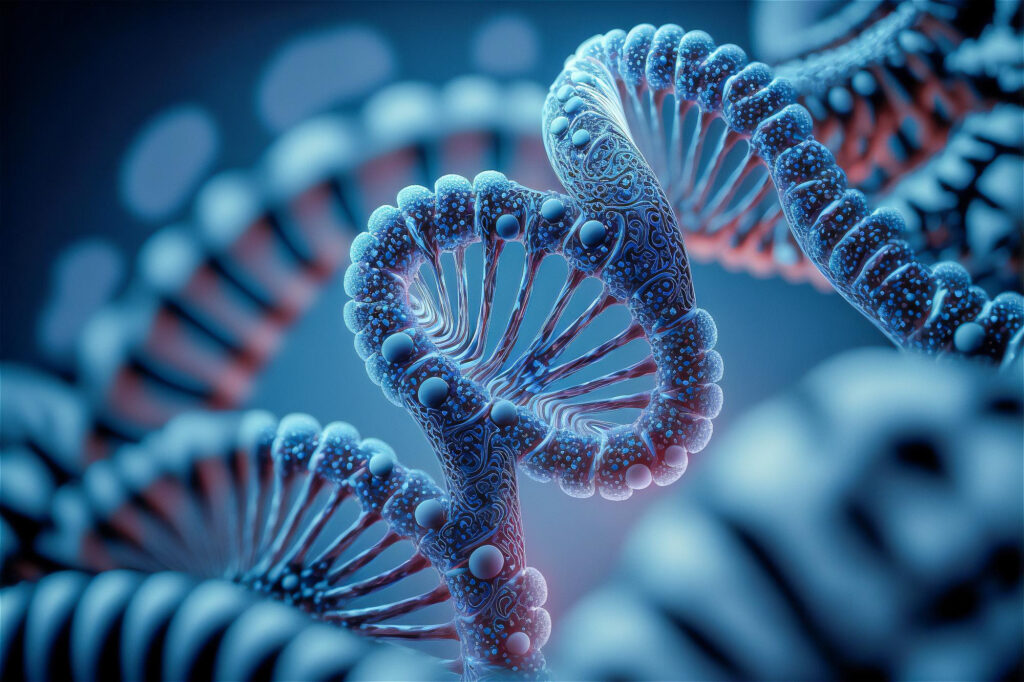Imagine a world where wellness is the main goal, and weight loss is the hero that can help you achieve it. You want to be focused on your work, charming to your girlfriend, and the best version of yourself. How do you do it? By embarking on the exciting journey of weight loss.
Weight loss is not just about seeing the numbers on the scale go down; it’s about adopting a lifestyle that makes you feel alive. It’s not just about fitting into your old clothes; it’s about improving your health and reducing the risk of diseases. It’s not just about losing weight; it’s about gaining confidence, energy, and happiness.
Think of health problems as the villains, and weight loss as your superpower. You can fight them off by eating nutritious foods that are low in calories and high in protein, healthy fats, and fiber. These are your weapons in this epic battle. And who says healthy food can’t be tasty and fun?
Move on to the lifestyle part, where every hero needs a partner. You want to be active, look good, and be helpful, right? Exercise is not a chore; it’s your ally, whether it’s a jog in the park or a dance in the living room. And don’t forget the power of sleep – your secret tool for healing and restoring.
Weight loss is not a lonely quest but a team effort. It’s about understanding the complex links between health, self-esteem, food, and lifestyle. Celebrate every small win as you realize this journey is more than weight loss; it’s about becoming a healthier, happier version of yourself.
So, in this amazing story, let weight loss be your hero – the spark for a life that is full of health, confidence, and joy. Enjoy the adventure, cherish the victories, and become not just lighter but the hero of your own awesome story.
Causes & Reasons of becoming overweight
There are many but let’s start with most important reasons to becoming overweight, looks old, fat cow and lezy.
Eating like will never eat again – Calories
One of the main reasons why people gain weight is because they eat more calories than they burn. Calories are units of energy that our body needs to function. When we eat more calories than we use, our body stores the extra energy as fat. This can make us gain weight over time.

But not all calories are equal. Some foods have more calories than others, and some foods are better for our health than others. Processed and sugary foods, such as fast food, snacks, cakes, candies, and sodas, are high in calories, but low in nutrients. They also have a lot of fat, sugar, and salt, which can harm our health. These foods can make us feel hungry and crave more food, even when we are not really hungry. This can make us eat more than we need, and gain more weight.
To avoid this, we should limit our intake of processed and sugary foods, and choose healthier options instead. Fruits, vegetables, whole grains, lean meats, fish, nuts, seeds, and low-fat dairy products are good sources of nutrients, such as vitamins, minerals, and fiber. They also have fewer calories, but more protein, healthy fats, and complex carbohydrates, which can help us feel full and satisfied. These foods can help us lose weight and improve our health.
No Physical activities
Another reason why people gain weight is because they don’t get enough physical activity or exercise. Physical activity and exercise are important for our health and well-being.
They can help us burn calories, build muscle, improve metabolism, and reduce stress. They can also help us prevent or treat some of the problems that obesity can cause, such as joint pain, inflammation, and sleep disorders.

But many of us are not active enough. We spend too much time sitting, love watching TV, using computers, or playing video games.
Well! These activities can make us lazy and bored, and lower our energy levels. They can also make us gain weight, as we burn fewer calories and use less muscle.
we should be more active and exercise more. The World Health Organization recommends that we get at least 150 minutes of moderate to vigorous physical activity per week, or 30 minutes per day.
This can help us lose weight and improve our health. We can also add more movement to our daily routine, such as taking the stairs, walking, cycling, or doing household chores. These can help us stay fit and happy.
Genetics – Fat daddy
Another reason and one of the factors that can affect our weight is our genetics. Genetics are the traits that we inherit from our parents, such as our eye color, hair color, height, and blood type. Genetics can also influence our metabolism, appetite, and body fat distribution, which are related to our weight.

Metabolism is the process of turning food into energy. Some people have a faster metabolism than others, which means they burn more calories even when they are not doing anything. This can make it easier for them to lose weight or maintain a healthy weight.
Appetite is the feeling of hunger or desire for food. Some people have a stronger appetite than others, which means they feel hungry more often and eat more. This can make it harder for them to lose weight or maintain a healthy weight.
Body fat distribution is the way that fat is stored in our body. Some people tend to store more fat in the abdominal area, which is also called visceral fat. This type of fat is more dangerous for our health, as it can increase the risk of diabetes, heart disease, and other problems.
These genetic factors can make some people more prone to weight gain than others, but they are not the only factors. We can still lose weight by following a healthy diet and lifestyle, and by seeking medical advice and treatment if needed. We can also learn more about our genetics by taking a DNA test, which can tell us more about our ancestry, health, and traits.
Hormones
Hormones is another factor that can affect our weight is our hormones. Let’s look into hormones. Hormones are substances that our body makes to control different functions, such as growth, reproduction, metabolism, and appetite.

Hormones can change during different stages of life, such as puberty, pregnancy, menopause, or aging, or due to certain medical conditions, such as thyroid disorder or polycystic ovary syndrome. These changes can affect our weight by changing our metabolism, appetite, and body fat distribution.
Metabolism is the process of turning food into energy. Some hormonal changes can make our metabolism faster or slower, which can affect how many calories we burn.
For example, during puberty, our body makes more sex hormones, such as estrogen and testosterone, which can make our metabolism faster and increase our appetite.
This can make us gain weight. During menopause, our body makes less estrogen, which can make our metabolism slower and cause fat to build up in the abdominal area. This can also make us gain weight.
Appetite is the feeling of hunger or desire for food. Some hormonal changes can make our appetite stronger or weaker, which can affect how much we eat.
For example, during pregnancy, our body needs more calories and nutrients to support the baby, which can make our appetite stronger. This can make us gain weight.
Some medical conditions, such as thyroid disorder or polycystic ovary syndrome, can also affect our appetite and cravings, and make us eat more or less than usual. This can make us gain or lose weight, depending on the condition.
Body fat distribution is the way that fat is stored in our body. Some hormonal changes can make our body fat distribution more or less even, which can affect our health and appearance.
For example, some people tend to store more fat in the abdominal area, which is also called visceral fat. This type of fat is more harmful for our health, as it can increase the risk of diabetes, heart disease, and other problems.
Some hormonal changes, such as menopause or polycystic ovary syndrome, can make us store more visceral fat, which can make us gain weight and have health problems.
These hormonal changes can make it hard for some people to lose weight, but they are not the only factors. We can still lose weight by following a healthy diet and lifestyle, and by seeking medical advice and treatment if needed. We can also learn more about our hormones by taking a blood test, which can tell us more about our hormone levels and balance.
Medication
Medication is something that we take to treat or prevent various conditions, such as illness, pregnancy, or mood. Some medication can have side effects that can affect our weight, such as changing our appetite, metabolism, or digestion. Appetite is the feeling of hunger or desire for food. Metabolism is the process of turning food into energy. Digestion is the process of breaking down food into nutrients.

These medication can make it hard for some people to lose weight, but they are not the only factors. We can still lose weight by talking to our healthcare provider about the possible effects of our medication on our weight, and by asking for alternative options if available. We can also follow a healthy diet and lifestyle, and monitor our weight regularly.
One of the factors that can affect our weight is our stress, sleep, and emotions. These are things that we experience in our personal or professional life, such as work pressure, family problems, financial difficulties, or relationship conflicts. They can affect our weight by changing our hormones, brain, and behavior.
Stress is how our body reacts to a threat or challenge. It can make us feel anxious, nervous, or angry. It can also make us produce more cortisol, a hormone that affects our metabolism, appetite, and blood sugar levels. Cortisol can make us hungry and crave for high-calorie and high-fat foods, such as chocolate, chips, and pizza. It can also make us burn fewer calories and store more fat in the abdominal area. This can make us gain weight.
Sleep is how our body rests and recovers. It can make us feel refreshed, alert, and energetic. It can also affect the levels of leptin and ghrelin, two hormones that control our hunger and satiety. Leptin is the hormone that tells our brain that we are full and should stop eating. Ghrelin is the hormone that tells our brain that we are hungry and should start eating. Sleep can affect the balance of these hormones. If we don’t get enough sleep, we may have less leptin and more ghrelin, which can make us feel hungrier and eat more. This can make us gain weight.
Emotions are the feelings and thoughts that affect our mood and well-being, such as sadness, anger, fear, or joy. They can affect our weight by influencing our eating habits and choices. Some people may eat more or less than usual, depending on their emotional state. Some people may use food as a way of coping with their emotions, such as eating for comfort, reward, or distraction. This is called emotional eating, and it can make us eat in response to emotions, rather than hunger. Emotional eating can make us consume more calories and less nutrients, and interfere with our normal hunger and satiety signals. This can make us gain weight.
These factors can make it hard for some people to lose weight, but they are not the only factors. We can still lose weight by managing our stress, improving our sleep, and addressing our emotions. We can also seek professional help, such as counseling, therapy, or support groups, if needed.
You want to prevent or treat overweight and obesity, and that means living a healthy lifestyle. A healthy lifestyle is about eating well, avoiding junk food and drinks, being active and having fun, sleeping well, and coping with stress. It’s a personal journey, where you find the best way to take care of your body, mind, and spirit. It’s not just about fighting the extra weight; it’s about creating a happy and strong life where every choice matters.



